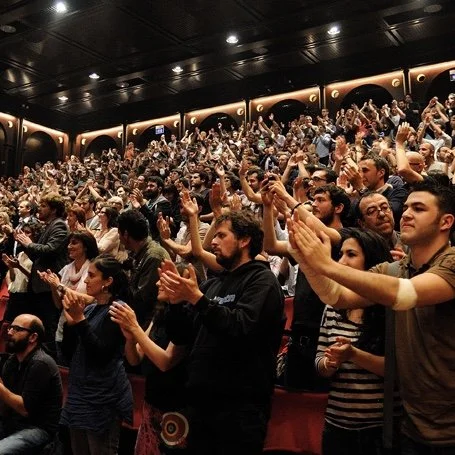Making the Transition
A new skillset
Imagine you’re the brilliant pilot of a small, nimble fighter plane, and one day you’re given the keys to a jumbo jet. The basic knowledge is there but you‘ll need to make some pretty significant changes to avoid crashing into the ground. And so it is for singers, although with slightly less devastating results if it goes wrong.
There are two main routes into cabaret: musical theatre and singing in bars or piano lounges. Each requires their own skill set but for a successful transition into cabaret, some of those hard-earned skills will need to be left in the wings.
From the Lounge
I’ve seen many brilliant piano vocalists. They constantly read the room and decide where they want to take it. Maybe it’s a quiet night and people just want to chat and barely notice the music, or maybe it’s packed with people ready to party. A piano entertainer can go from background music to being the focus of the whole room in the time it takes to say American Pie. One minute they’re tinkling Gershwin ballads and the next they’re wearing a feather boa and diamante glasses belting out Crocodile Rock. That ability to change their set and style on the fly is a real skill but not one they’ll be needing in the theatre.
James Brown used to talk about this. He started singing in casino lounges, competing with the bars, the noisy slots and people gambling. He had to do whatever necessary to get their attention. When he moved into the main room he realised the audience was different. They had paid for the show and were ready to be entertained. James had to rehearse his act, know exactly what he was doing and be a lot more polished.
From Musical Theatre
As a trained actor you’ll have learned to observe the fourth wall, respect the book, and how to immerse yourself in your character. Maybe, you were drawn to acting precisely because you enjoy becoming someone else on stage. Cabaret is the opposite. One of the things that makes cabaret different to normal theatre, and (I think) more compelling, is that the performers are not hiding behind a character. They are being as close to their real selves as possible. There is an honesty to this and with that comes vulnerability. It takes time and a good measure of self awareness to present the real you to your audience. The fourth wall is gone and it’s just you talking to them. There’s nowhere to hide.
This is why great musical theatre singers or piano entertainers don’t always transition well at headline acts. And visa versa: a headliner may get standing ovations every night but die a death in the piano bar. They are different jobs that require different skills.
The skills you need as a headliner can be learned but don’t expect it to be quick or easy. Like everything else, it takes time and patience but I’m pretty sure it’s much easier than flying a jumbo jet. Probably.

